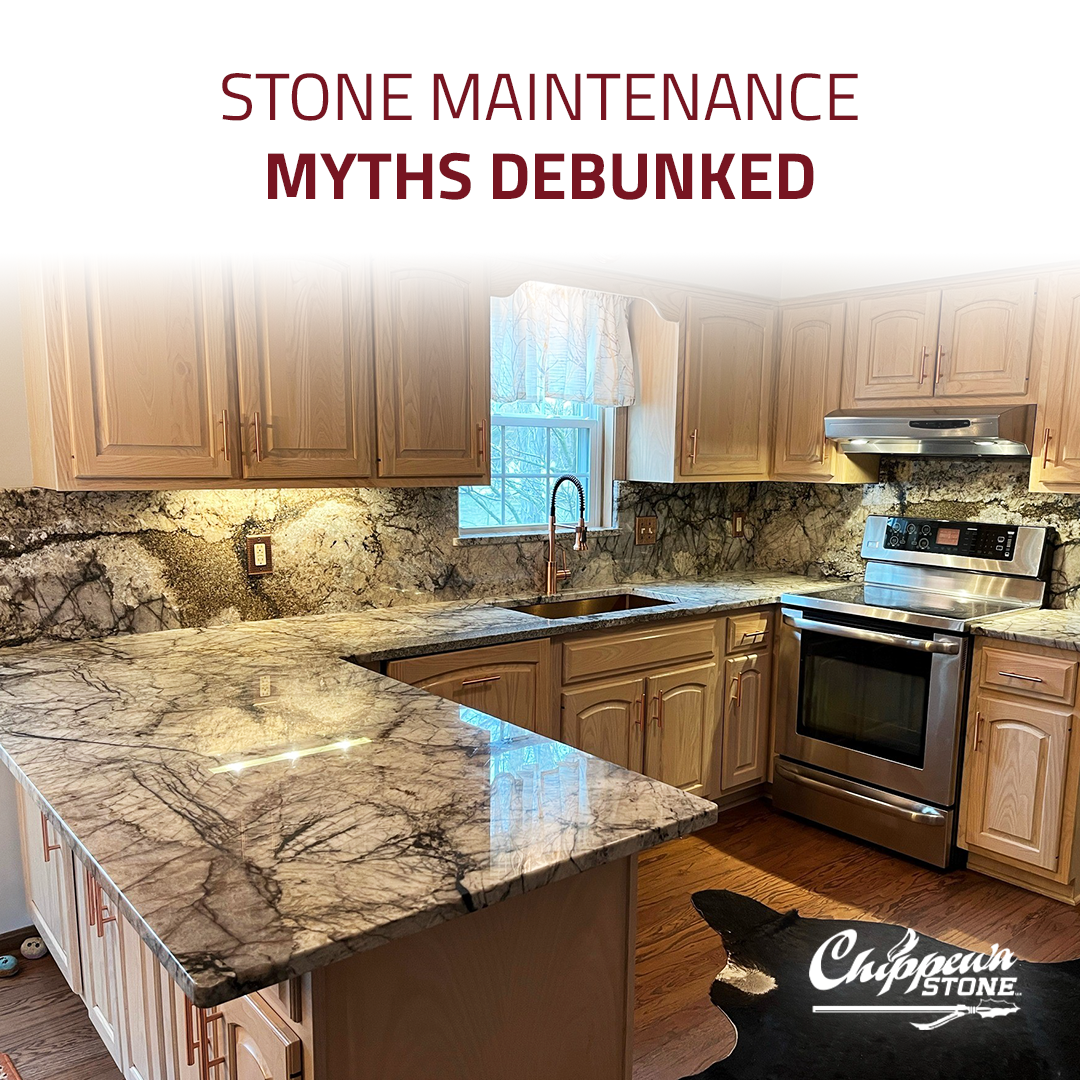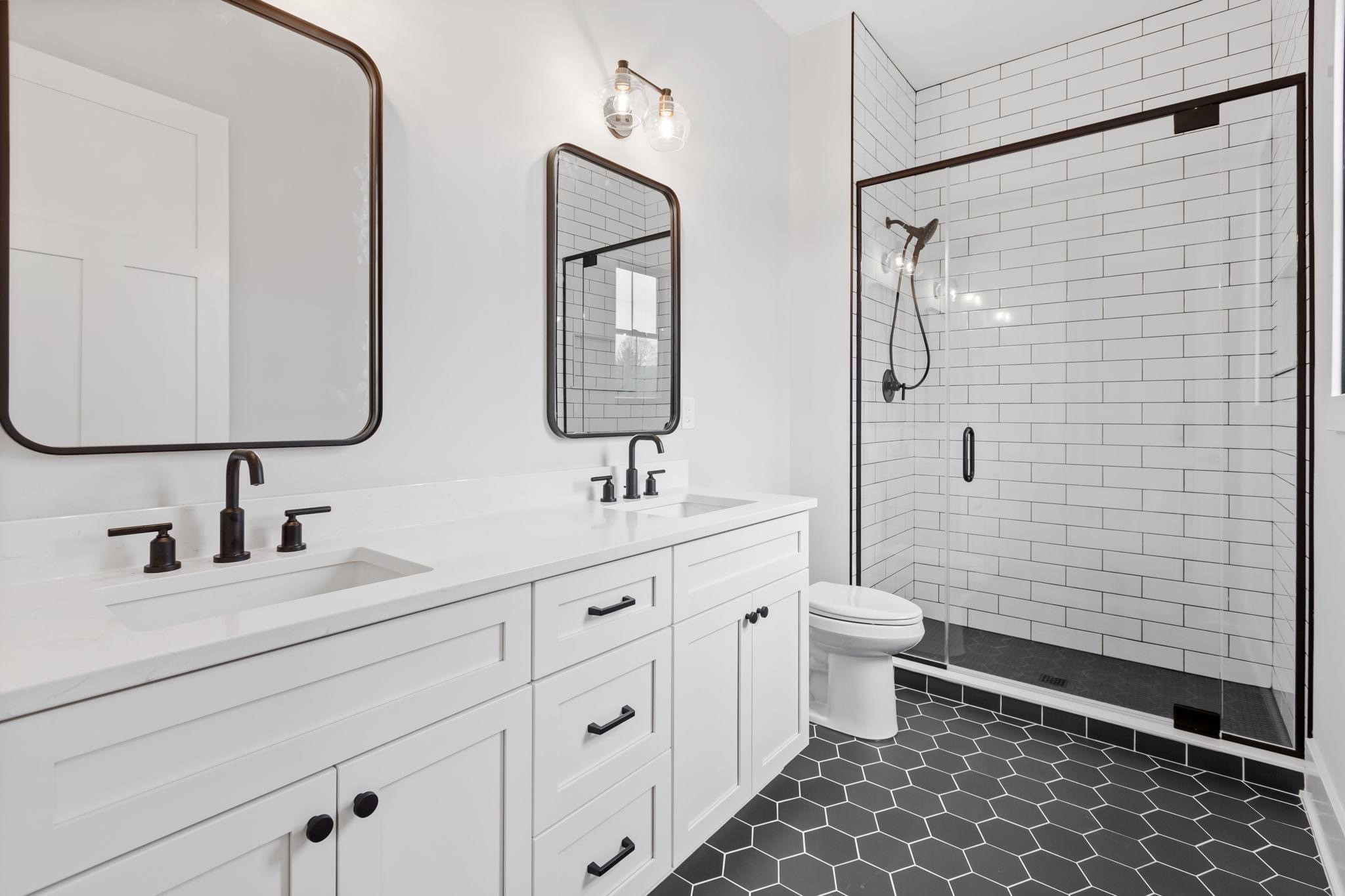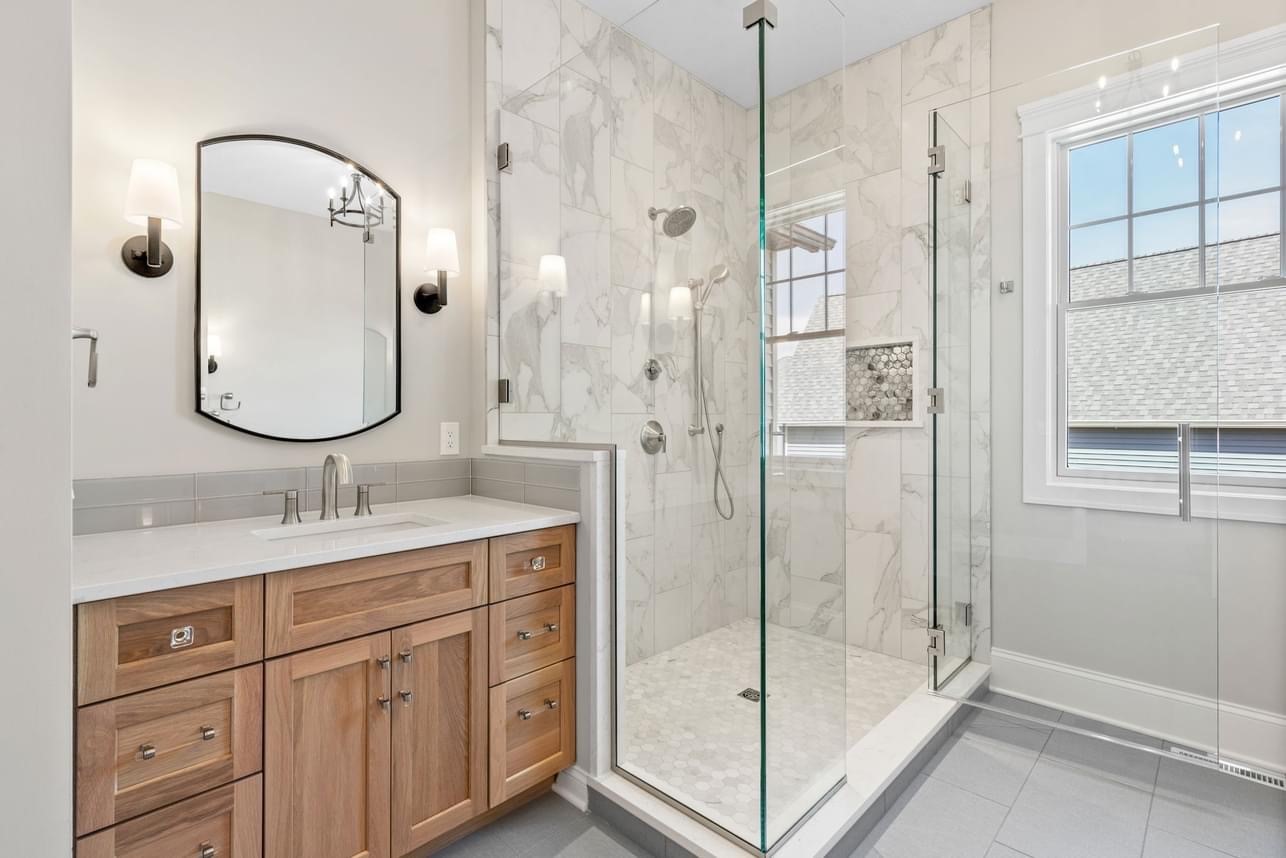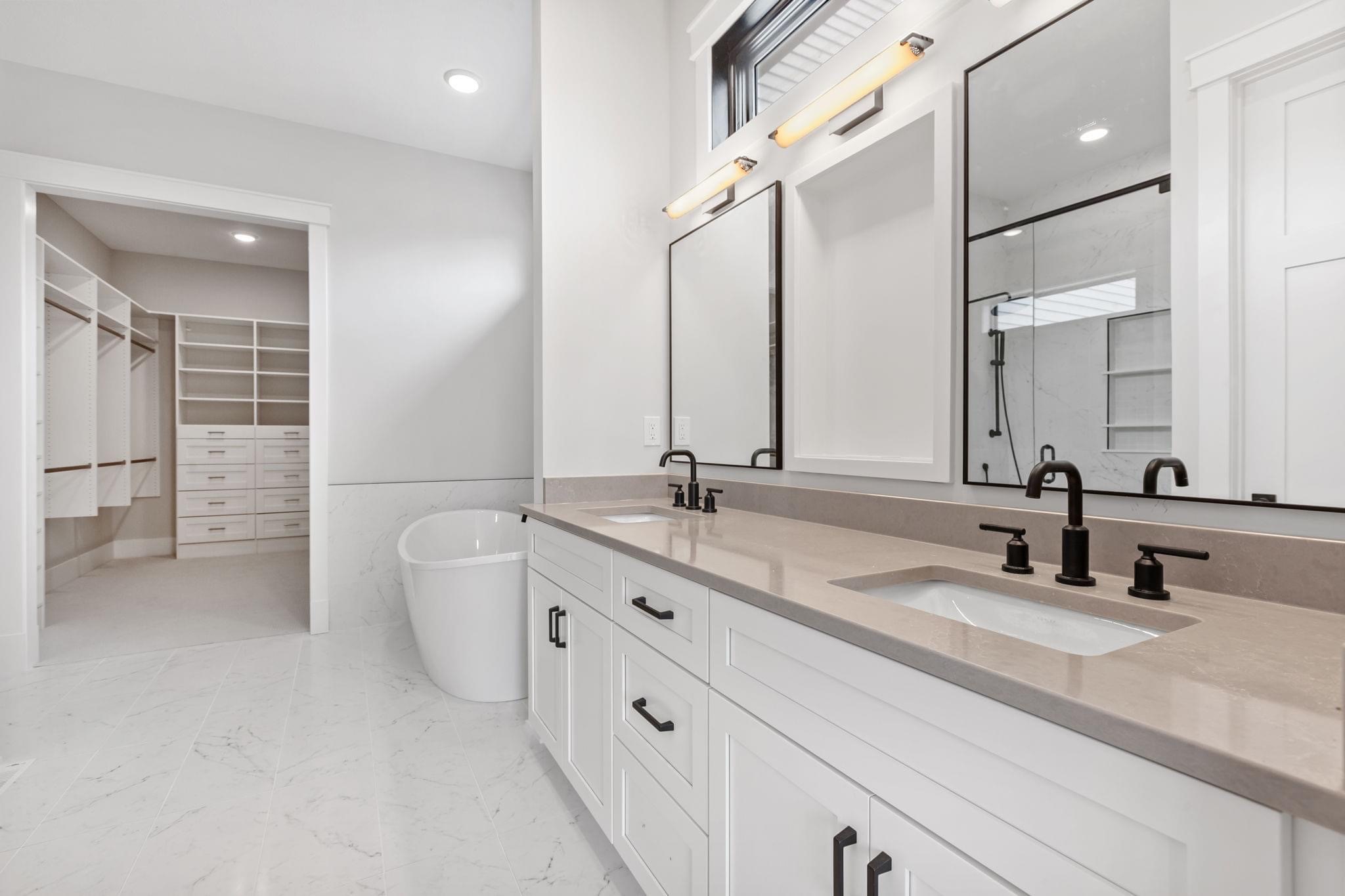Natural stone surfaces are known for their beauty, durability, and timeless appeal. But with all the admiration comes plenty of misinformation. From cleaning routines to sealing requirements, there are countless stone maintenance myths floating around that can lead to confusion or even damage. Whether you have granite countertops, marble vanities, quartzite islands, or soapstone sinks, understanding the truth about stone care is essential to keeping your investment looking its best.
In this blog, we’re setting the record straight on the most common stone maintenance myths—and sharing what you really need to know to protect and preserve your surfaces for years to come.
Myth #1: Natural Stone Doesn’t Need Any Maintenance
Debunked: While natural stone is incredibly durable, it’s not maintenance-free. Each type of stone has unique properties and care requirements. For example, marble is more porous and can stain or etch if not properly sealed and cleaned. Granite and quartzite are tougher but still benefit from regular sealing and gentle cleaning.
Truth: Regular care (like cleaning with a pH-neutral cleaner and resealing when needed) helps preserve the stone’s beauty and function. Skipping maintenance may not cause instant damage, but over time, it can lead to staining, etching, or dullness.
Myth #2: You Should Use Vinegar or Bleach to Clean Stone
Debunked: Harsh cleaners like vinegar, bleach, and ammonia may be effective for other surfaces, but they can damage natural stone. These substances are acidic or highly alkaline and can break down sealants or even etch into the stone itself.
Truth: Always use a pH-neutral stone cleaner or a simple mix of mild dish soap and warm water. Use a soft cloth or sponge and avoid abrasive pads. Keeping a gentle cleaning routine will extend the life and luster of your stone.
Myth #3: Sealed Stone is Stain-Proof
Debunked: Sealing your stone does provide a barrier against staining, but it doesn’t make your surfaces bulletproof. Sealants help slow down the absorption of liquids, giving you more time to clean up spills—they don’t prevent stains entirely.
Truth: Sealed stone is stain-resistant, not stain-proof. It’s still important to wipe up spills quickly, especially with acidic substances like wine, coffee, citrus juice, or oil. Even with a good seal, these liquids can leave marks if left for too long.
Myth #4: All Stones Need to Be Sealed the Same Way
Debunked: Not all stones have the same porosity, so they don’t all require the same sealing routine. Granite, quartzite, and dolomite generally hold up well with occasional sealing, while marble may need more frequent applications. Engineered quartz doesn’t need sealing at all.
Truth: The frequency and type of sealant you use should be based on your specific stone and how often it’s used. Some stones may need annual sealing; others might go several years between treatments.
Myth #5: Stone is Too High-Maintenance for Everyday Use
Debunked: While some stones require a bit more care than others, many natural stone surfaces are perfect for everyday living. Granite, quartzite, and soapstone are especially popular in kitchens and bathrooms thanks to their durability and resistance to heat and scratches.
Truth: With proper sealing and simple daily habits, natural stone can easily stand up to family life, cooking, entertaining, and more. Choosing the right stone for the right location helps minimize the need for heavy upkeep.
Myth #6: You Can Use Any Cutting Board or Hot Pan Directly on Stone
Debunked: Stone is heat-resistant, but not heat-proof. Likewise, it’s scratch-resistant, not scratch-proof. Repeated exposure to high heat or sharp knives can cause damage over time, including dull spots or small cracks.
Truth: Always use trivets for hot pots and pans and cutting boards for food prep. These small habits help prevent accidental wear and extend the life of your stone surface.
Myth #7: Quartz is Natural and Doesn’t Need Maintenance
Debunked: While quartz countertops are often referred to as “stone,” they are engineered using natural quartz crystals combined with resins and pigments. They’re nonporous and require less maintenance, but they’re still vulnerable to things like extreme heat and harsh chemicals.
Truth: Quartz is low-maintenance but not indestructible. Avoid abrasive cleaners, and don’t place hot items directly on the surface to keep it in top shape.
Myth #8: All Etching is Permanent
Debunked: Etching—which appears as dull or light spots—happens when acidic substances react with calcium-based stones like marble or dolomite. While etching can be stubborn, it isn’t always permanent.
Truth: Minor etching can often be polished out or minimized with specialty stone products. For deeper damage, a professional stone restoration technician can usually bring the surface back to life.
Myth #9: Stone Surfaces Don’t Harbor Bacteria
Debunked: While stone doesn’t inherently breed bacteria, it’s not completely immune to it either. Porous surfaces can absorb moisture and harbor bacteria if not cleaned regularly.
Truth: Keeping stone surfaces clean and dry is key to preventing bacterial growth. Using cutting boards and cleaning up spills promptly helps maintain a hygienic surface, especially in kitchens and bathrooms.
Myth #10: DIY Repairs Are Just as Good as Professional Ones
Debunked: While DIY kits are available for filling chips or polishing stone, they rarely match the quality or longevity of professional repairs. Using the wrong products or techniques can even worsen the issue.
Truth: For small chips or cosmetic blemishes, a DIY fix might hold you over temporarily. But for best results, it’s always wise to consult a pro—especially for polishing, sealing, or structural repairs.
Bonus Tips: How to Care for Stone the Right Way
Now that we’ve debunked some major myths, here are a few proven tips for maintaining your stone surfaces:
- Clean spills immediately to prevent stains or etching
- Use a pH-neutral cleaner regularly
- Seal your stone as needed (check annually)
- Avoid direct heat and cutting on stone surfaces
- Wipe down with a soft cloth to prevent scratches and buildup
- Use coasters and trays under drinks and toiletries
Why Stone Care Matters
Natural stone isn’t just an aesthetic feature; it’s an investment in your home. Taking the time to learn about your specific material and treating it with the right care helps ensure your countertops, vanities, and other surfaces look beautiful and function properly for decades.
At Chippewa Stone, we believe that education is one of the best ways to protect that investment. That’s why we provide ongoing guidance and resources for every customer who walks through our doors.
Not sure what kind of maintenance your stone needs? Reach out to our team or visit our showroom—we’re always happy to help.








